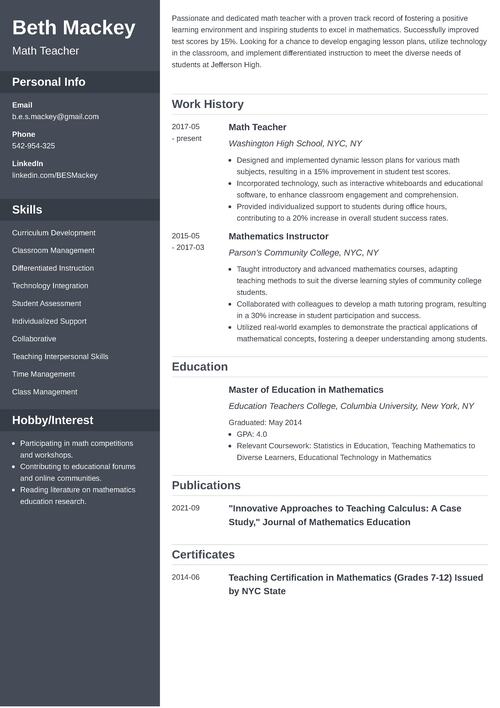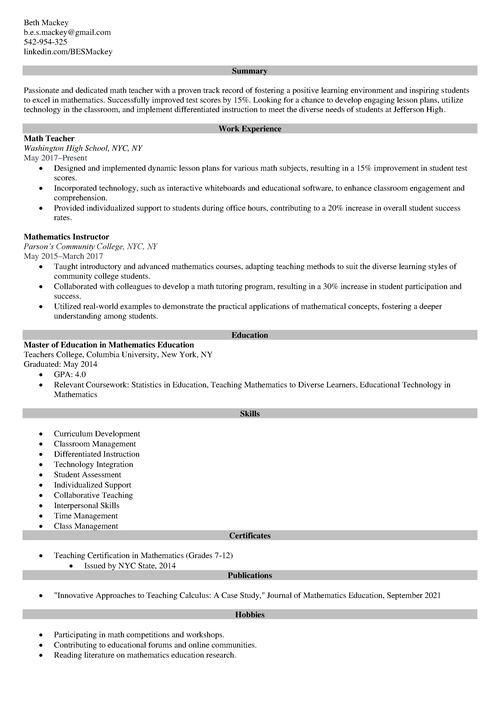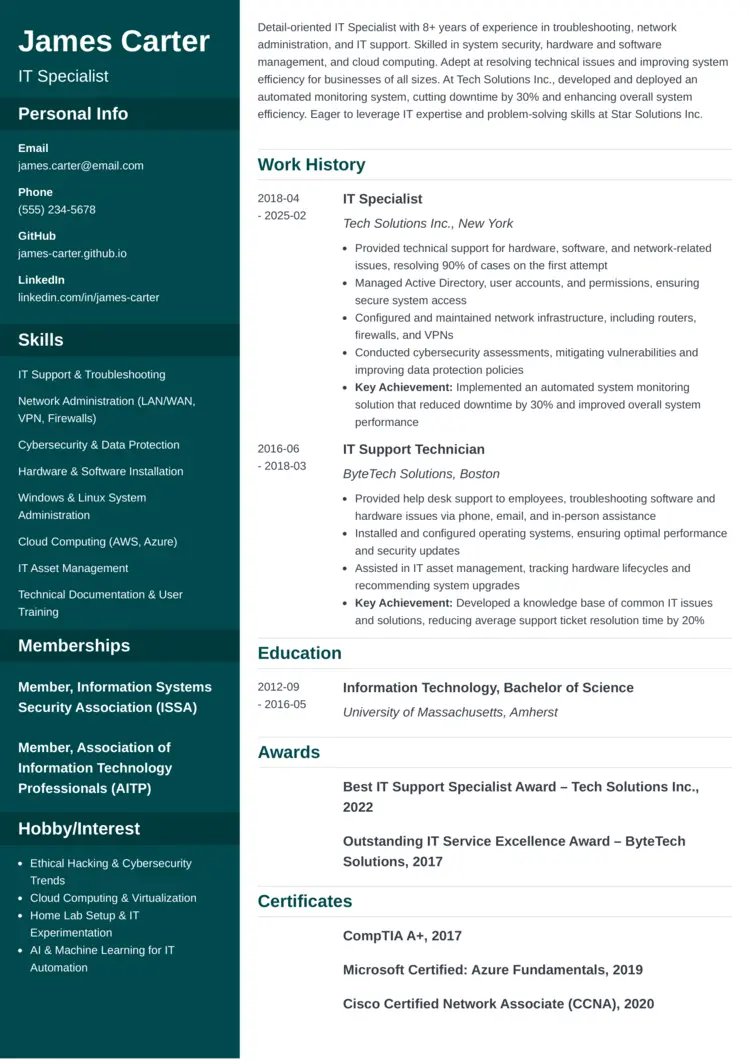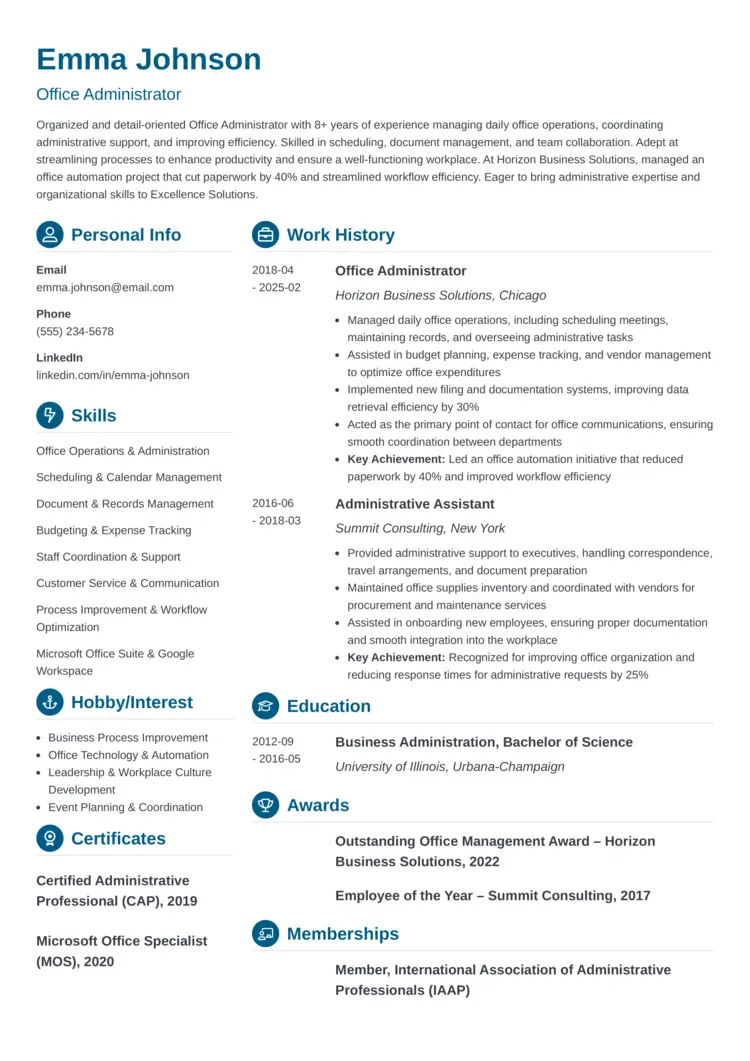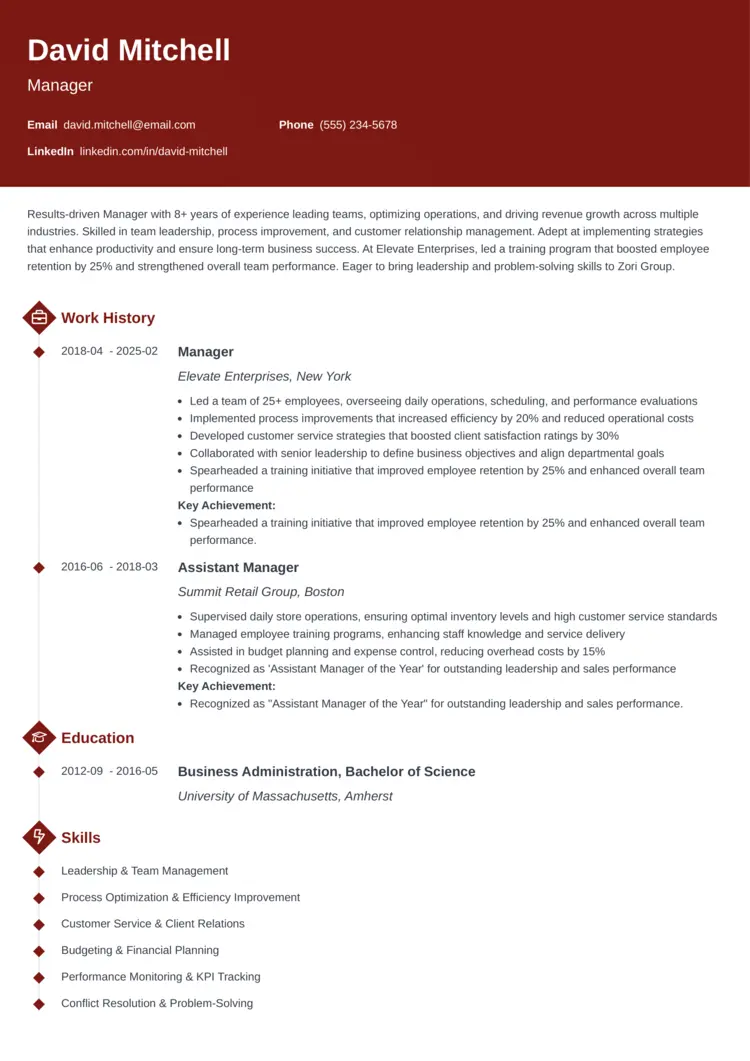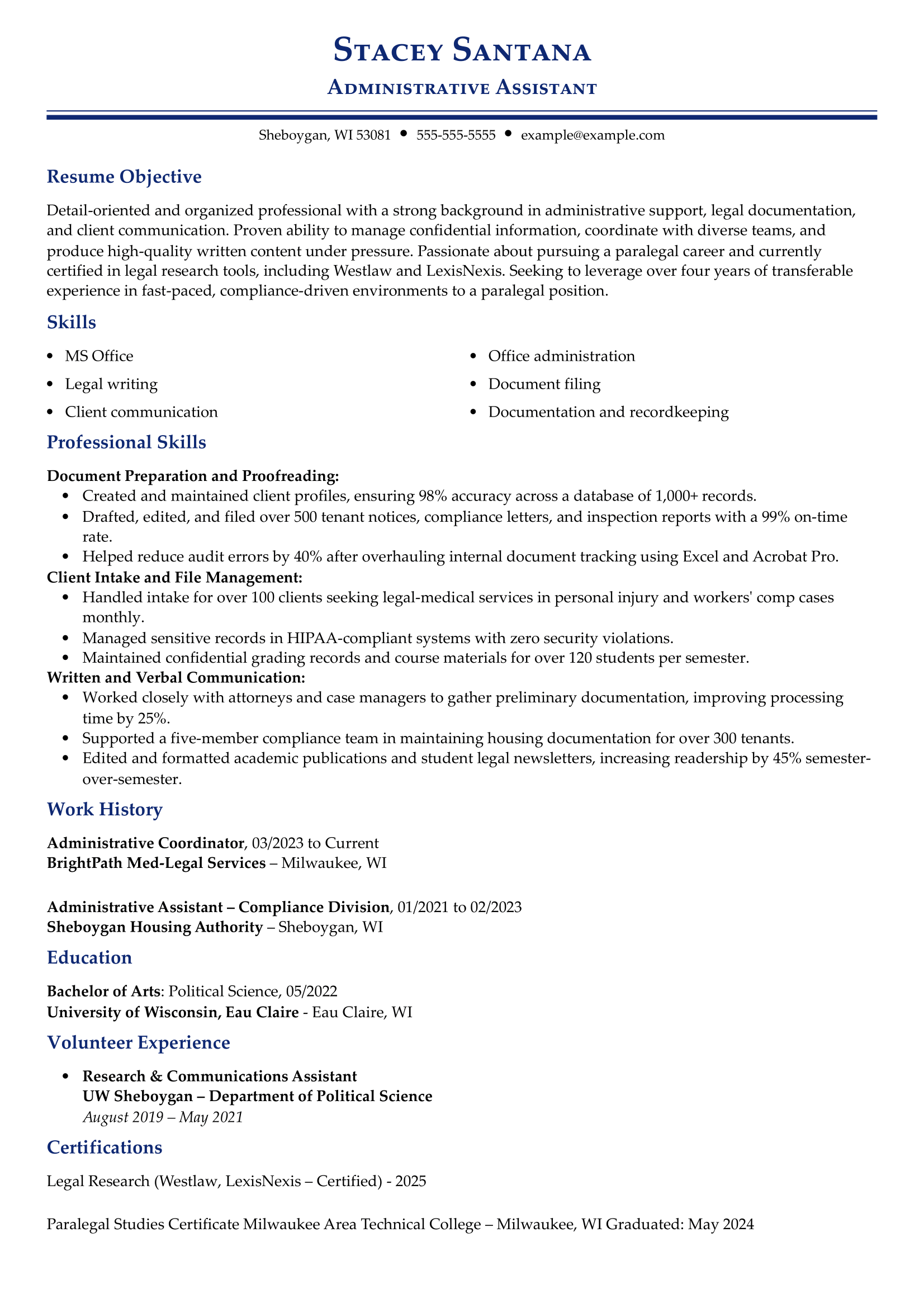Your resume is often the first thing an employer sees, so it needs to show the best of you.
Knowing the key things to include in a resume—like your skills, experience, and education—can help you stand out from the crowd. In this guide, we’ll cover the must-haves and share resume templates you can use to build your own.
Want to save time and have your resume ready in 5 minutes? Try our resume builder. It’s fast and easy to use. Plus, you’ll get ready-made content to add with one click.
Sample resume made with our builder—See more resume examples here.
What to Include on a Resume: Essential Elements
When writing your resume, it's important to know exactly what information employers expect to see. Let's break down the essential things to put on your resume:
Resume header
Your resume header should be prominently displayed at the top of your resume. Include essential contact details that will help recruiters get in touch with you for an interview. Add the following:
- Full name
- Professional title
- Phone number
- Email address
- City, ZIP code, and state
- LinkedIn or Bold.pro profile
- Professional website, blog, or portfolio (if applicable)
Pro tip: Whenever you update your contact information, don’t forget to update it on your professional networking profiles as well. Recruiters will check your online presence, and so should you!
Professional summary or objective
Most recruiters have just a few seconds to read your resume. A strong resume summary or objective helps them quickly see your professional strengths and decide if they want to learn more.
If you're an experienced candidate, use a professional summary. Write three to four sentences showcasing your achievements and relevant experience, focusing on how your expertise can help the team grow.
See this example:
Accomplished buyer and planner with over five years of experience in inventory management, procurement, and supply chain coordination. Expertise in analyzing sales data to inform strategic purchasing decisions and maintain optimal stock levels. Successfully negotiated vendor contracts that reduced costs by 15% while improving product availability, demonstrating a strong ability to support business growth and operational efficiency.
If you're a recent graduate or a career changer, a resume objective allows you to highlight your skills and goals. Share your skill set and how you plan to use it to get results in your new role.
For example:
Recent social work graduate with a strong foundation in case management, community outreach, and client support. Eager to apply academic knowledge and internship experience to help individuals and families access resources, improve well-being, and achieve positive outcomes. Committed to supporting diverse communities and contributing to a compassionate, solutions-focused team.
Pro tip: Zety’s Resume Builder offers tailored suggestions to help you quickly write a summary or objective that showcases your strengths.
Work experience
Your work experience is one of the most important parts of your resume. When listing past jobs, include your job title, the company name, and the dates you worked there.
But don’t just describe your duties—focus on your achievements. Use numbers and results whenever possible to show the impact you made.
Here’s an example:
Buyer/Planner | Meditronic Supply Co.
Jan 2020 – Present | Remote
- Managed inventory for multiple product lines, maintaining optimal stock levels and reducing stockouts by 18%.
- Analyzed sales trends and forecasted demand to inform strategic purchasing decisions, improving on-time product availability by 12%.
- Negotiated contracts with vendors, achieving a 15% cost reduction while maintaining quality and delivery standards.
Making a resume with our builder is incredibly simple. Follow our step-by-step guide, use ready-made content tailored to your job and have a resume ready in minutes.
When you’re done, our ATS Resume Checker will give your resume a score and tell you exactly how to make it better.
Education
Your education section can highlight relevant skills—especially if you have limited work experience. Include your degree, the school you attended, and your graduation date.
If you’re a recent graduate or changing careers, consider adding relevant coursework, projects, or academic achievements that demonstrate your knowledge and skills in the field. This helps employers see your potential and understanding of the industry.
See this example:
Bachelor of Arts in Social Work
University of Florida
May 2025
- Relevant coursework: Case Management, Human Behavior in the Social Environment, Community Practice, Social Policy & Advocacy
Skills
Your skills section helps employers quickly see what you can do.
Include a mix of hard skills—like software, tools, or technical abilities—and soft skills—like communication, teamwork, or problem-solving.
Be specific and relevant to the job you’re applying for. For example, a buyer/planner might list skills like inventory management, demand forecasting, and vendor negotiation, while a social worker could highlight case management, client advocacy, and active listening.
Pro tip: Scan the job description for keywords. Employers often list the skills they value most, so including these in your resume helps you stand out and pass applicant tracking systems (ATS).
Additional sections
Adding extra sections to your resume can help you stand out, especially if you have unique skills, achievements, or experiences that aren’t covered in your main sections. Here are some common options to consider:
- Certifications: Show any professional licenses or certifications that are relevant to the job, like CPR, PMP, or a supply chain certificate.
- Language skills: Highlight languages you speak and your level of proficiency. This can be especially valuable in global or customer-facing roles.
- Hobbies & interests: Include hobbies that demonstrate valuable soft skills or traits, like teamwork, creativity, or leadership.
- Volunteer experience: Share unpaid work or community service that shows your commitment, initiative, or transferable skills.
- Publications: List articles, research papers, or book chapters you’ve authored or contributed to, especially if relevant to your field.
Resume Templates With All the Key Sections
Zety's resume templates are professionally designed to include all essential sections employers expect to see. Here are four popular templates you can use:
Cascade
Crisp
Diamond
Refined
Key Takeaways
Knowing the good things to put on a resume can help you create a strong, professional document that stands out to employers.
Keep these key points in mind as you build or update your resume:
- Clearly write your contact information so hiring managers can schedule an interview with you.
- Include a resume summary or objective to show your strengths and goals quickly.
- Highlight your work experience with measurable accomplishments that demonstrate your impact.
- List your education, and add relevant coursework or projects if you have limited work experience.
- Feature a mix of hard and soft skills, and use keywords from the job description to match what employers are looking for.
- Add additional sections like certifications, languages, volunteer experience, or publications to showcase unique skills.
About Zety’s Editorial Process
This article has been reviewed by our editorial team to make sure it follows Zety's editorial guidelines. We’re committed to sharing our expertise and giving you trustworthy career advice tailored to your needs. High-quality content is what brings over 40 million readers to our site every year. But we don't stop there. Our team conducts original research to understand the job market better, and we pride ourselves on being quoted by top universities and prime media outlets from around the world.


